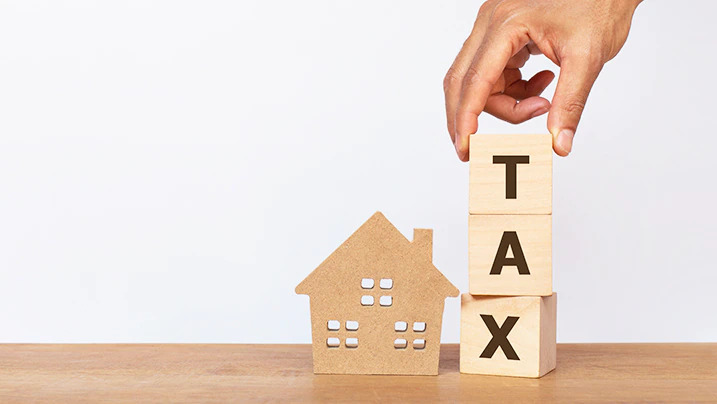Owning a house is a must-do on everyone’s list and the easy availability of affordable housing finance schemes makes it simpler for individuals to go home hunting. Further, to minimise the cost of availing credit, the government provides a number of tax benefits on home loans under the Income Tax Act of 1961 subject to particular terms and conditions. Once you understand the advantages of these deductions and how one may claim them, it will help you save a significant sum while making tax payments.
Home Loan Tax Benefits
A housing loan has two components against which repayments are made. Every EMI you pay comprises a small portion of the loan principal amount and the interest levied on it. House loan borrowers are entitled to Home Loan Tax Benefits on both these variables under Sections 80 C and 24 (b) of the ITA. You can claim these exemptions at the end of each financial year while filing your taxes if you meet the specified requirements.
Normally, when you avail of a home loan, you are eligible for the following tax concessions:
Given below is a detailed look at the various tax advantages available to home loan borrowers:
Tax Exemption on Home Loan Principal Repayment Under Section 80C
Section 80 C of the Income Tax Act provides tax rebates up to a maximum amount of Rs. 1.5 lakh annually on the principal amount of your monthly instalments. It is important to note that one can secure this deduction only after the construction of their residential property is complete. But if you sell the house within five years of acquiring possession, the exemptions obtained until that period will be reversed and transferred into your account to be taxed accordingly.
Tax Deduction For Stamp Duty and Registration Charges Under Section 80C
One can receive tax deductions under Section 80 C for the payment of stamp duty and registration fees. This benefit is included in the overall ceiling of Rs. 1.5 lakh, applicable on the loan principal sum, which can be claimed just once in the year of incurring the expenses. You may secure this rebate even if you do not obtain a housing loan for purchasing the house.
Tax Concession on Home Loan Interest Under Section 24 (b)
Borrowers can enjoy substantial exemptions on their loan interest paid under Section 24 income tax act. If you reside in a self-owned property, the maximum rebate of Rs. 2 lakh may be claimed from your gross income every year provided the construction or acquisition of the house is completed within five years of availing the loan. If you exceed this time frame, the deduction limit will drop to Rs. 30,000 annually. The borrowed funds must be utilised for buying or constructing a property. The concessions do not apply if you avail the loan for carrying out reconstruction or repairs on an existing house.
In case your property is rented out, the entire amount of interest paid on the home loan for its purchase, construction, repair or renovations can be gained as tax rebates. Also, there is no time limit within which property construction should be finished. Moreover, the losses incurred under the head ‘Income from house property’ can be offset against other heads of income up to Rs.2 lakh. And if unabsorbed losses remain, they may be carried forward to the following year/s as per ITA provisions.
Tax Deduction on Interest Paid for an Under-Construction Property
In the event that one utilises the loan to purchase an under-construction property and starts paying off the EMIs during the construction phase, they can claim the interest deductions only after the building is complete. Borrowers are entitled to loan interest concessions for both the pre-construction and post-construction phases. If you want to obtain the pre-construction interest, you can do so in five equal instalments, beginning from the year in which the house was acquired or built. Therefore, the total exemption available to taxpayers under Section 24 (b) for interest payment is 1/5th of the interest during the pre-construction period (if any) plus interest incurred in the post-construction stage.
Tax Benefits for a Joint Home Loan
When you secure a home loan jointly, each co-borrower can individually enjoy rebates on the loan interest up to Rs. 2 lakh under Section 24 (b) and on the principal amount up to Rs. 1.5 lakh under Section 80 C. As compared to the benefits received by a single applicant, this assures you of double the tax concessions, provided both applicants are co-owners of the property and share the loan EMI pay-outs.
Tax Rebates for Borrowers on a Second Home Loan
Homeowners can avail of these tax exemptions even if they take a second house loan to purchase another property which will then be subject to the applicable restrictions. The government has incentivised investments in real estate since the Union Budget of 2019. Earlier, just one property could be considered self-occupied while the second house would be treated as being let out. A notional rent calculation was subsequently done and taxed as income. But currently, even the second property may be deemed as self-occupied.
Summing Up
Housing loans enable you to borrow large sums of money with customised repayment options that suit your budget. At the same time, you can even gain considerable tax benefits on your home loan. If you wish to apply for a home loan, remember that there is a certain cost attached. So before you submit your loan application, first, assess loan viability and plan your finances well to ensure problem-free approvals of preferred loan amounts with favourable rates and terms.





Comments